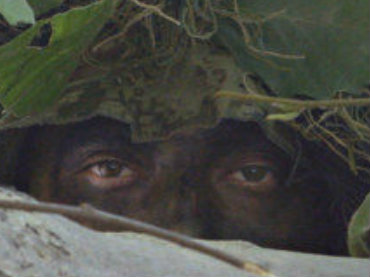- Sections :
- Crime & Public Safety
- Restaurants & Food
- Sports
- More
Categories
'We Men Are Lions'...a movie in the making explores PTSD

THE WOODLANDS, Texas -- A group of young filmmakers explore the consequences of Post-Traumatic Stress Disorder (PTSD), want to tell the story that combines the experiences of servicemen and women from all angles. Jim Jacobi, a former Woodlands resident, is writing the story and will direct We Men are Lions, and is currently working on funding the project.
The movie has roots to The Woodlands.
“By the time we start principal photography on We Men Are Lions, America will have been at war for more than thirteen consecutive years -- that's almost half my life,” said Jim Jacobi, writer and director of We Men Are Lions. “I'm making this film to give voice to the servicemen and women who struggle with PTSD after combat, and their continuing fight to re-integrate into society.”
Writer/Director, Jim Jacobi, was raised in The Woodlands, and developed an interest in the military at an early age. He enrolled in Oak Ridge High School's Air Force JROTC Program, class of 2004. After receiving his B.A. in Military History from Texas Tech in 2009, Jim moved back to The Woodlands before eventually moving to Los Angeles to follow his passion for filmmaking, which was solidified after watching the film, Saving Private Ryan. Jacobi will graduate from Loyola Marymount University's School of Film & Television with a Master in Fine Arts in 2015.
"Steven Spielberg recreated the fog of war, and accessed the audience's emotions in a way that hadn't been done before. After experiencing that, I knew I had to do everything in my power to recreate that feeling for my own audience," said Jacobi.
As an undergraduate, Jacobi amassed a small personal library of soldiers' memoirs dating back to the American Civil War. After delving through these varied experiences of war, he began to understand a common thread of emotions that servicemen and women share across generations. While applying to film school, Jacobi read Marcus Luttrell's book Lone Survivor. He decided his thesis film would tell the story of a fierce firefight in the Afghanistan mountains and the aftermath of that chaos, focusing on its only survivor. Thus the idea of We Men Are Lions was born.
PTSD has been broached by Hollywood in recent years, but We Men Are Lions portrays the realities of modern combat and its aftermath in a unique way -- through the eyes of a teenager. While the film is a very intimate portrayal of a young man’s transition from combat to his once-upon-a-time suburban life, the scope of this issue deserves the utmost attention and resources. Jacobi intends to achieve that level of detail.
In We Men are Lions, A Marine sniper is the sole survivor of an overwhelming firefight against the Taliban. Marine Scout Sniper, Steven Becvar, barely survives a brutal encounter with the Taliban in the Hindu Kush Mountains of Afghanistan, but in the process leaves a part of his humanity in that unforgiving terrain. Upon returning to his suburban hometown, Steven must reconcile his actions in Afghanistan that he deemed necessary to survive. Through an increasingly combative relationship with his friends and family, he begins to understand that the civilian world offers no refuge for him. When the struggle to fit in proves insurmountable, the weight of Steven's experiences climaxes in a violent moment of truth.
“Great films have the power to change lives. This power rests in the ability to make people look at the world around them in a new way, and that's exactly our goal with We Men Are Lions,” said Jacobi. “By focusing on the current war in Afghanistan -- and the personal aftermath of servicemen and women -- we're aiming to provide a way for people not associated with the military to be more empathetic towards the individuals facing this underrepresented struggle at home.”
“Making movies is an expensive endeavor, and Steven's story in We Men Are Lions, is too important for us to cut corners,” said Jacobi. “As aspiring independent filmmakers, we don't have access to the financial resources of major Hollywood studios. Through the grassroots nature of crowdfunding, we are able to raise money to make a quality film, as well as reach an audience much larger than our network of friends and family. Although we're trying to raise money, our primary goal is to raise awareness and broaden this cultural conversation.”
A fundraiser is currently in progress to raise the essential funds for the movie’s production. According to Jacobi, fund contributors will receive ‘awesome perks’ for their donations. To contribute to the movie’s funding go to We Men Are Lions. More information about the movie email wemenarelions@gmail.com
Comments •
















